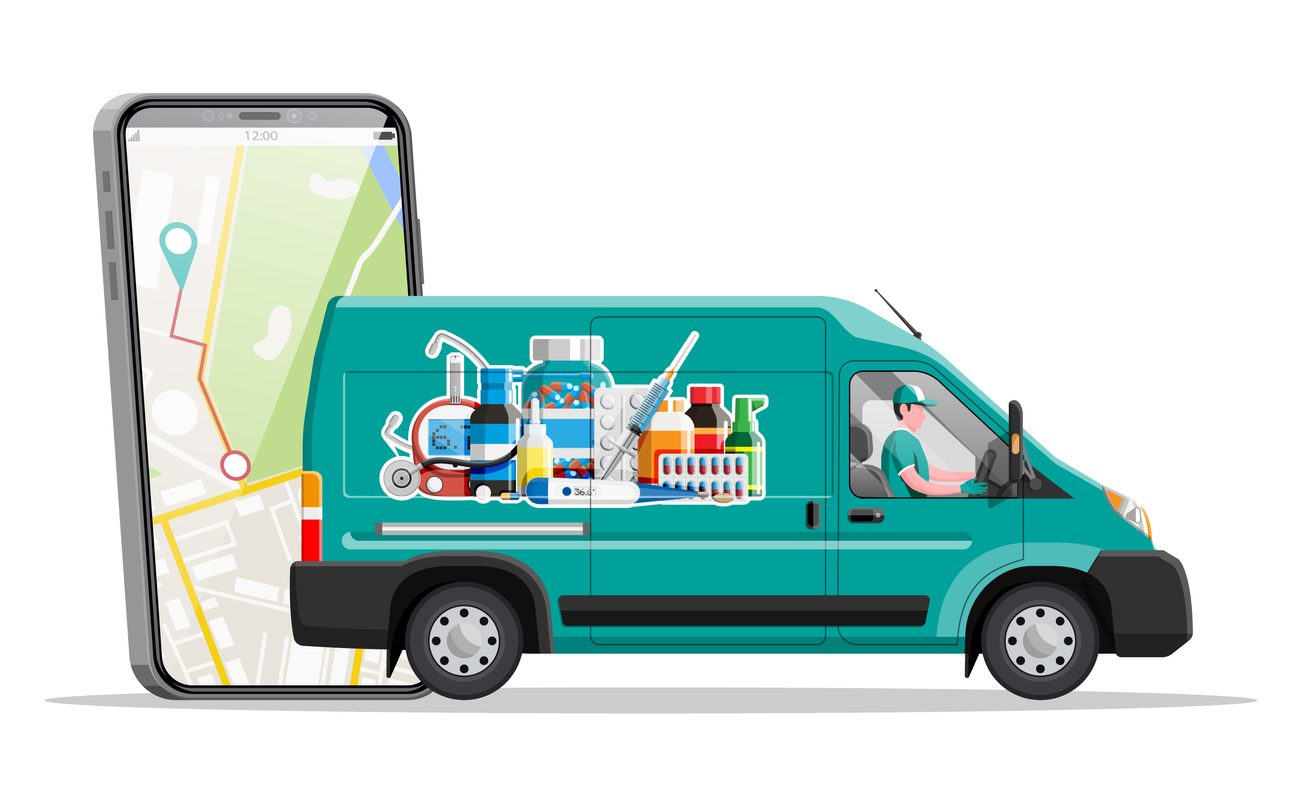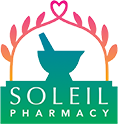COVID-19 VACCINATION
STATUS UPDATE
Soleil Pharmacy has received the Pfizer vaccine.
Soleil Pharmacy Mobile Vax Clinic
We come to you for COVID-19 and Flu Vaccines!
– Schools
– Place of Worship
– Workplace
– Stadium
– Assisted Living and Long Term Care Facilities
– Any location available, we come to you!
Contact us today at (443) 281-9157

SOLEIL PHARMACY COVID-19 VACCINE PROCESS
THIRD DOSE COVID-19 INFORMATION:
Q: Who is eligible to receive a 3rd dose of the COVID-19 Vaccine?
- Receiving active cancer treatment for tumors or cancers of the blood
- Received an organ transplant and are taking medicine to suppress the immune system
- Received a stem cell transplant within the last 2 years or are taking medicine to suppress the immune system
- Moderate or severe primary immunodeficiency (such as DiGeorge syndrome, Wiskott-Aldrich syndrome)
- Advanced or untreated HIV infection
- Active treatment with high-dose corticosteroids (i.e., ≥20mg prednisone or equivalent per day for > 14 days) or other drugs that may suppress your immune response [e.g., alkylating agents (cyclophosphamide); antimetabolites (methotrexate); transplant-related immunosuppressive drugs (cyclosporine, tacrolimus, everolimus); TNF-blockers (etanercept)
- Other condition(s) which cause moderate or severe immunosuppression similar to the above conditions
Sometimes people who are moderately to severely immunocompromised do not build enough (or any) protection when they first get a vaccination. When this happens, getting an additional (or third) dose of the vaccine can sometimes help them build more protection against the disease. In contrast, a “booster dose” refers to another dose of a vaccine that is given to someone who built enough protection after vaccination, but then that protection decreased over time (this is called waning immunity).
People who are moderately to severely immunocompromised are especially vulnerable to COVID-19 because they are more at risk of serious, prolonged illness. Their immune systems may not have built the same level of immunity with a 2-dose vaccine series compared with people who are not immunocompromised. There is not enough data at this time to determine whether immunocompromised people will require a booster dose.
Moderna COVID-19 Vaccine EUA
Emergency Use Authorization – link
- Moderna EUA tiếng việt: https://www.fda.gov/media/
144714/download - Moderna EUA en español: https://www.fda.gov/
media/144712/download - Moderna EUA hangug-eolo: https://www.fda.
gov/media/144825/download
Moderna COVID-19 Vaccine info – link
Pfizer COVID-19 Vaccine EUA
Emergency Use Authorization – link
- Comirnaty and Pfizer-BioNTech COVID-19 Vaccine EUA tiếng việt: https://www.fda.gov/media/
144626/download - Comirnaty and Pfizer-BioNTech COVID-19 Vaccine EUA en español :https://www.fda.gov/media/
144625/download - Comirnaty and Pfizer-BioNTech COVID-19 Vaccine EUA hangug-eolo: https://www.fda.
gov/media/144620/download
Pfizer COVID-19 Vaccine info – link
J&J Vaccine EUA
Emergency Use Authorization – link
- J&J EUA tiếng việt: https://www.fda.gov/
media/146742/download - J&J EUA en español: https://www.fda.gov/
media/146762/download - J&J EUA hangug-eolo: https://www.
fda.gov/media/146839/download
FAQ ABOUT THE COVID-19 VACCINE
Can the vaccine give me COVID-19?
No. None of the COVID-19 vaccines currently authorized for use or in development in the United States use the live virus that causes COVID-19. However, it typically takes a few weeks for the body to build immunity after vaccination. That means it’s possible you could be infected with the virus that causes COVID-19 just before or just after vaccination and get sick.
If I already had COVID-19 and recovered, do I still need to get vaccinated?
Yes. CDC recommends that you get vaccinated even if you have already had COVID-19. While you may have some short-term antibody protection after recovering from COVID-19, we don’t know how long this protection will last.
Can my child get vaccinated for COVID-19?
No. More studies need to be conducted before COVID-19 vaccines are recommended for children aged 16 and younger.
Is it safe to get a COVID-19 vaccine if I have an underlying medical condition?
Yes. COVID-19 vaccination is especially important for people with underlying health problems like heart disease, lung disease, diabetes, kidney disease or obesity. People with these conditions are more likely to get very sick from COVID-19.
Is it better to get natural immunity to COVID-19 rather than immunity from a vaccine?
No. While you may have some short-term antibody protection after recovering from COVID-19, we don’t know how long this protection lasts. Vaccination is the best protection, and it is safe. People who get COVID-19 can have serious illnesses, and some have debilitating symptoms that persist for months.
Why do I need two COVID-19 shots?
Currently authorized vaccines, and most vaccines under development, require two doses of vaccine. The first shot helps the immune system recognize the virus, and the second shot strengthens the immune response. You need both to get the best protection.
Will the shot hurt or make me sick?
There may be side effects, but they should go away within a few days. Possible side effects include a sore arm, headache, fever, or body aches. This does not mean you have COVID-19. Side effects are signs that the vaccine is working to build immunity. If they don’t go away in a week, or you have more serious symptoms, call your doctor.
What side effects can I expect?
Common side effects include pain at the injection site, headaches, feeling tired, muscle aches, joint pain, and a low-grade fever. These side effects are from your body making a good immune response and should only last 1-2 days. They are more common in people 18-55 years old and less common in people older than 55 years old. You can take over-the-counter medicines such as Tylenol and ibuprofen to help with the side effects.
Will there be long-term side effects?
We do not know if there will be long-term side effects yet. However, we believe the risk of long-term side effects is low because the mRNA used in the vaccine only lasts for two minutes in the body and is then broken down.
What about the reports of Bell’s palsy?
There were three cases reported in the Moderna vaccine trial and four cases reported in the Pfizer vaccine trial. The incidence of Bell’s palsy in the general population is 15-30 cases per 100,000 people. So, the number of cases reported in the trials is similar to what we would expect in the general population and they were most likely not caused by the vaccine.
What should I do if I experience a bad reaction?
Bad reactions to vaccines are rare but can happen. They are most likely to happen within a few minutes after getting a vaccine. Some examples of bad reactions include fainting and anaphylaxis which can include hives and trouble breathing.
We are asking you to stay at the pharmacy for 15 minutes after your injection so we can monitor you for reactions and take action if necessary.
What should I do if I experience a bad reaction later on?
If you experience a bad reaction after leaving the pharmacy, contact emergency medical services if necessary.
The people in the study were only followed for two months. How do we know it’s safe?
Monitoring the safety of vaccines will not stop. The clinical trials will continue for at least two years and the CDC and FDA have ways to monitor side effects of the general population which include VAERS (Vaccine Adverse Event Reporting System – explained below) and V-safe.
Can the COVID-19 vaccine cause infertility?
No. The concern has come from the claim that the spike protein made by the body after getting an mRNA vaccine is similar to Syncitin 1, which is a protein in the placenta, and antibodies would attack the placenta. However, they are not similar enough. There has not been a higher rate of birth defects or abortions in people with COVID-19. There were also some people in the Pfizer and Moderna trials have gotten pregnant. There were few adverse effects for pregnant people in the study and all occurred in the placebo group.
Can I get the COVID-19 vaccine if I am pregnant or breastfeeding?
Women who are pregnant or breastfeeding may choose to be vaccinated. However, if they have questions, they should have a discussion with their healthcare provider. There are limited data on the safety of COVID-19 vaccines for women who are pregnant. While studies have not yet been done, based on how the mRNA vaccines work, experts believe they are unlikely to pose a risk for pregnant women as they do not contain live virus and cannot give someone COVID. They do not interact with genetic material DNA as the mRNA does not enter the nucleus of the cell and cells break apart the mRNA quickly. Additionally, pregnant women are at an increased risk of severe illness if they develop COVID-19. This is a personal choice and pregnant women should have a conversation with their healthcare provider. There are no data on the safety of COVID-19 vaccines in lactating women or on the effects of mRNA vaccines on the breastfed infant or on milk production. mRNA vaccines are not thought to be a risk to the breastfed infant. Women who are breastfeeding may choose to be vaccinated but should also have a conversation with their healthcare provider and child’s pediatrician.
What is VAERS?
The Vaccine Adverse Events Reporting System (VAERS) has been around for many years. It is a way for healthcare providers to report adverse events to the CDC and FDA. If you do experience a bad reaction or have to be hospitalized for any reason after getting the vaccine, let your pharmacist know. We are required to report to VAERS if either of these things happen.
What is v-safe?
V-safe is a smart-phone based tool used to monitor side effects after getting the COVID-19 vaccine. After enrolling, you will receive text messages that will take you to an online survey to ask about side effects you may have. These text messages come daily for the first week after your vaccine, then weekly for the next 5 weeks, and then final check-ins at 3 months, 6 months, and 12 months after your final dose. If you do have side effects that impact your life, you may receive a phone call from the CDC so they can learn more.
We encourage all of our patients to enroll in v-safe. It is the easiest and fastest way for us to learn about the safety of the COVID-19 vaccines.
How can I enroll in v-safe?
Get more information at your vaccine appointment or go to vsafe.cdc.gov to enroll. Visit this website for more information.
For more information, visit: https://www.cdc.gov/coronavirus/2019-ncov/vaccines/index.html
